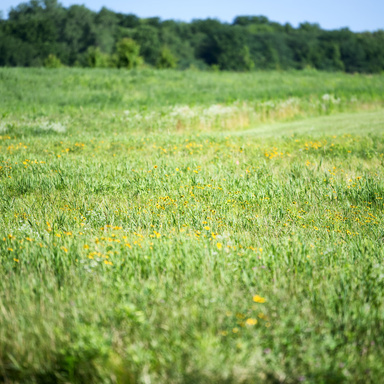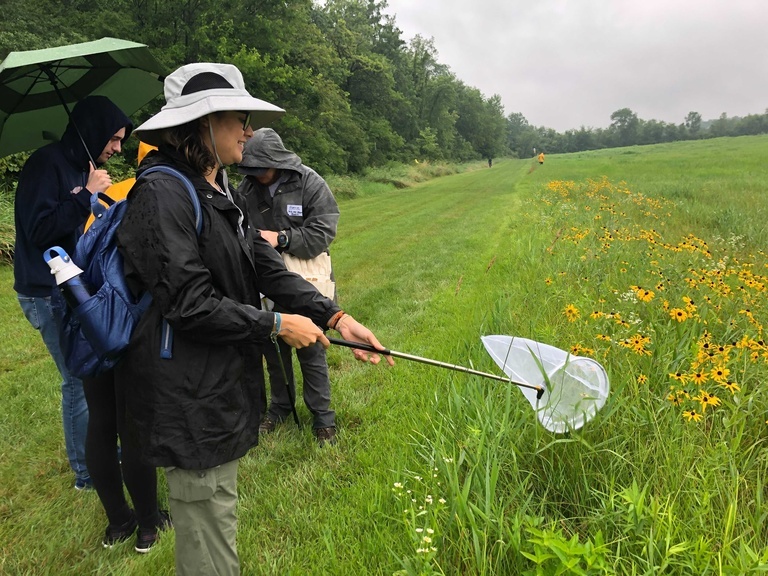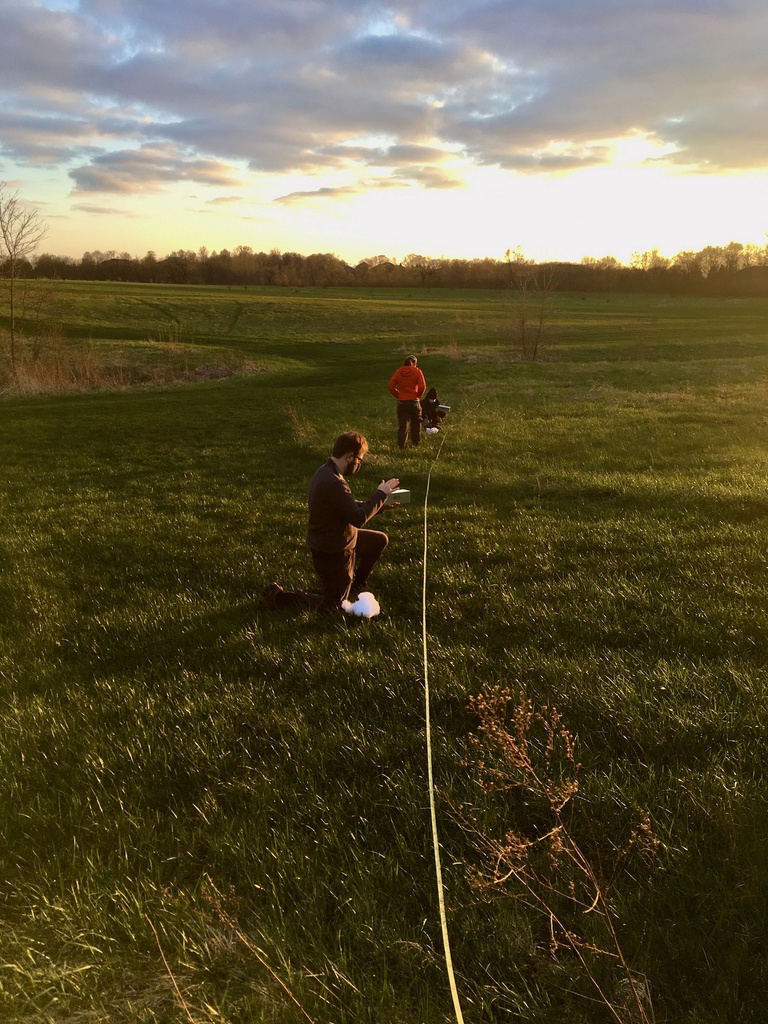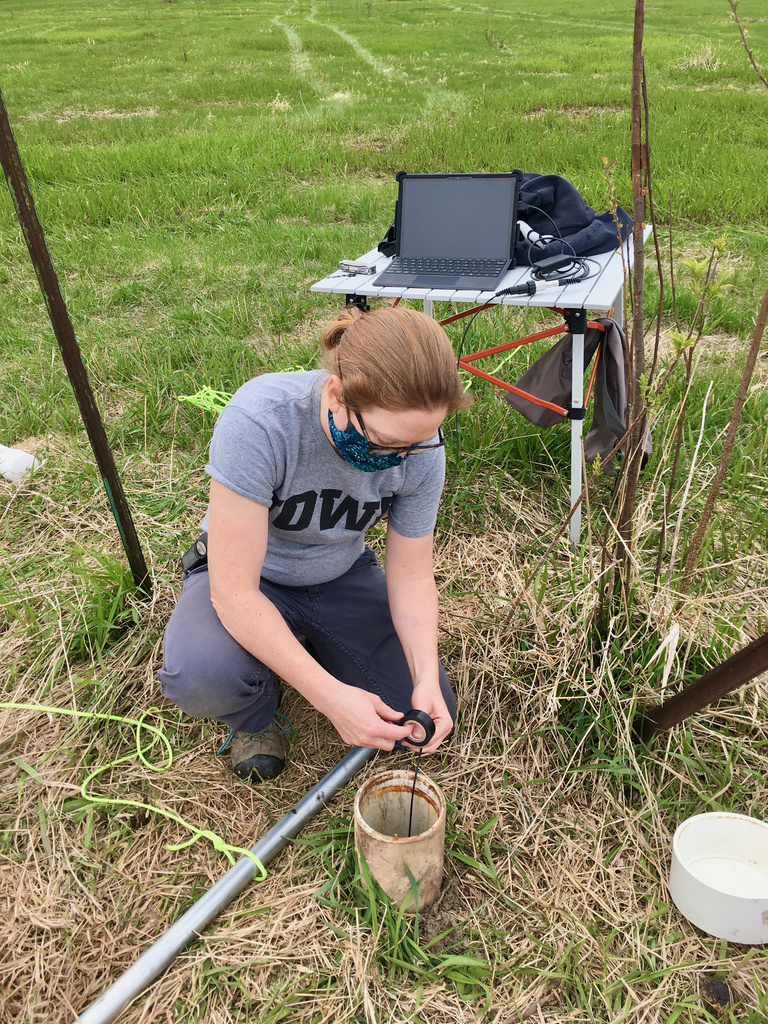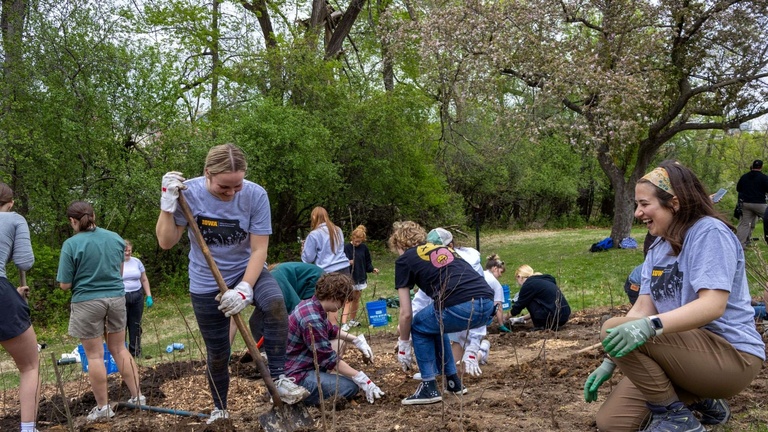The University of Iowa’s Living Labs Working Group (LLWG), supported by the Obermann Center for Advanced Studies, has released its report detailing the year of significant progress toward integrating place-based learning into academic life at the university.
Formed to explore and advance the concept of “living laboratories”—campus and community spaces that support experiential teaching, research, and well-being—the LLWG identified key opportunities and partnerships to bring these environments to life. The report summarizes the group’s 2024–2025 activities and accomplishments, including the launch of a new website.
Making Major Achievements
Conducting Foundational Research: In partnership with Laurie Neuerburg, Head Engagement Librarian at the UI Sciences Library, the group completed a literature review covering living laboratories, biodiversity, design principles, and experiential learning frameworks.
Campus-Wide Outreach: The LLWG developed and distributed a series of surveys to gather insights from students, faculty, staff, and site-specific stakeholders. A university-wide survey on space is currently under analysis.
Strategic Collaborations: The group established partnerships across campus, see the full list of partners below.
Living Lab Site Development: The group identified and assessed multiple potential living lab sites. Two locations—the courtyard adjacent to the Biology Building and Sciences Library, and the Lagoon Shelter House area—were the focus of detailed planning efforts in collaboration with UI Facilities, the College of Engineering’s Project Design & Management course, and UI Recreation Services.
Student Involvement and Funding Pursuits: Interns were hired to support key initiatives, and the group applied for a P3 grant to expand on-campus living labs. While the grant was not awarded, the group remains committed to pursuing future funding opportunities.
Digital Platform Creation: The group played a central role in developing a new virtual hub for living labs, which showcases six current sites and provides tools for students and educators to incorporate outdoor learning into coursework.
The LLWG’s work was made possible through the support of the Obermann Center for Advanced Studies.
“The Obermann Center gave our group the visibility and structure needed to collaborate across disciplines and break down institutional silos,” noted Blake Rupe, the Living Labs Working Group co-director. “Through this project, we were able to connect and collaborate with over 25 units to ensure broad participation from across campus.”
The full list of participants is below.
Participating Colleges, Departments, and Units
The interdisciplinary reach of the Living Labs Working Group includes representation from a broad array of university departments, colleges, and administrative units:
Campus Planning and Development
Carver College of Medicine
College of Education
College of Engineering
College of Law
College of Public Health
Department of Community and Behavioral Health
Department of Earth and Environmental Sciences
Department of Internal Medicine – Critical Care and Occupational Medicine
Department of Psychological and Quantitative Foundations
Division of Student Life
Facilities Management
Graduate College
IIHR–Hydroscience and Engineering / Iowa Flood Center
Macbride Nature Recreation Area
Magid Center for Writing
Office of Sustainability and the Environment
Office of Undergraduate Research
Pentacrest Museums
School of Planning and Public Affairs
Tippie College of Business
UI Energy Collaborative/Engie
UI Recreation Services
UI Sciences Library
External Partner: Campus Sustainability, Penn State University
About the Living Labs Working Group
The Living Labs Working Group brought together faculty, staff, students, and community members committed to advancing sustainability-focused learning at the University of Iowa. It is supported by the Obermann Center’s Working Group program, which fosters interdisciplinary collaboration on pressing social, cultural, and environmental challenges.
For questions and suggestions, contact sustainability@uiowa.edu.
